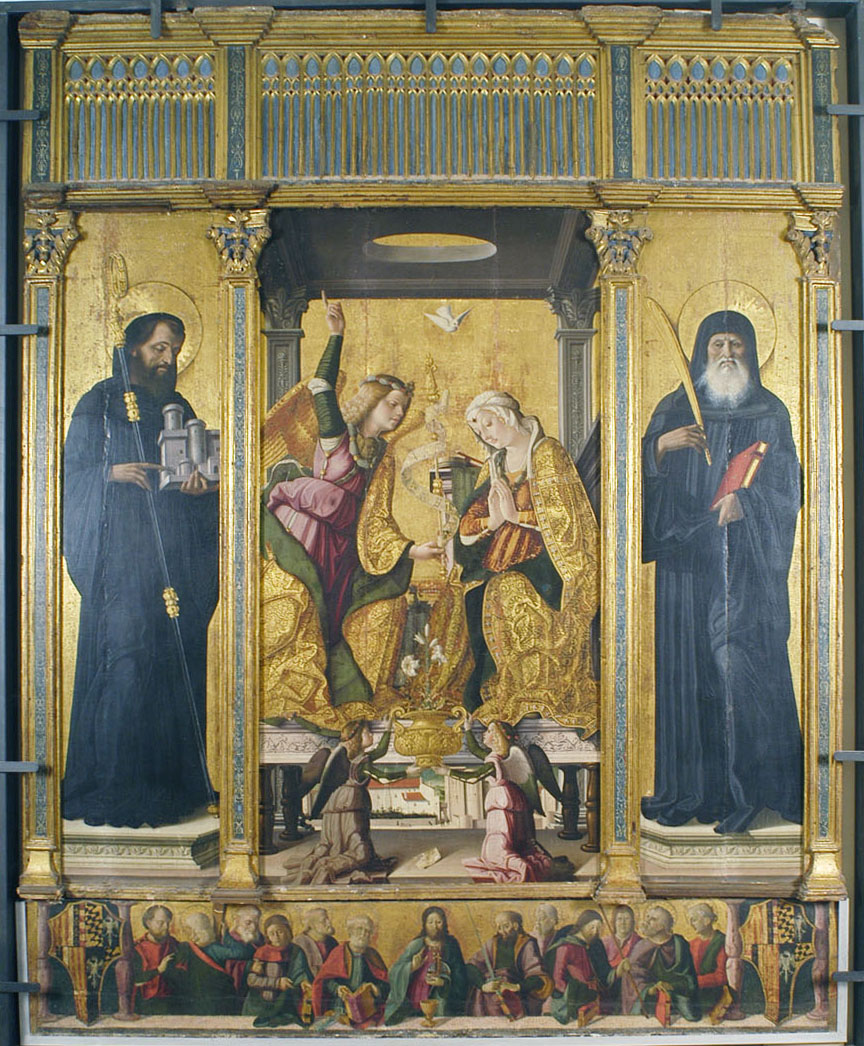Pope Saint Fabian was a layman when elected pope, a position he held from January 10, 236 until his martyrdom on January 20, 250.
St Sebastian died in 288 under Diocletian.
From the Roman Breviary:
"Fabian was a Roman, and sat as Pope from the reign of the Emperor Maximian till that of Decius. He appointed a deacon to each of the seven districts of Rome to look after the poor. He likewise appointed the same number of subdeacons to collect the acts of the Martyrs from the records kept by the seven district notaries. It was by him that it was ordained that every Maundy Thursday the old Chrism should be burnt and new consecrated. He was crowned with martyrdom upon the 20th of January, in the persecution of Decius, and buried in the cemetery of St. Callistus on the Appian Way, having sat in the throne of Peter fifteen years and four days. He held five Advent ordinations, in which he ordained twenty-two priests, seven deacons, and eleven bishops for divers Sees.

The father of Sebastian was of Narbonne, and his mother a Milanese. He was a great favourite of the Emperor Diocletian, both on account of his noble birth and his personal bravery, and was by him appointed captain of the first company of the Praetorian Guards. He was in secret a Christian, and often supported the others both by good offices and money. When some shewed signs of yielding under persecution, he so successfully exhorted them, that, for Jesus Christ's sake, many offered themselves to the tormentors. Among these were the brothers Mark and Marcellian who were imprisoned at Rome in the house of Nicostratus. The wife of Nicostratus himself, named Zoe, had lost her voice, but it was restored to her at the prayer of Sebastian. These facts becoming known to Diocletian, he sent for Sebastian, and after violently rebuking him, used every means to turn him from his faith in Christ. But as neither promises nor threats availed, he ordered him to be tied to a post and shot to death with arrows.
Sebastian was treated accordingly, and left for dead, but in the night the holy widow Irene sent for the body in order to bury it, and then found that he was still alive, and nursed him in her own house. As soon as his health was restored, he went out to meet Diocletian, and boldly rebuked him for his wickedness. The Emperor was first thunderstruck at the sight of a man whom he believed to been some time dead, but afterwards, frenzied with rage at the reproaches of Sebastian, ordered him to be beaten to death with rods, under which torment the martyr yielded his blessed soul to God. His body was thrown into a sewer, but he appeared in sleep to Lucina, and made known to her where it was, and where he would have it buried. She accordingly found it and laid it in those Catacombs, over which a famous Church hath since been built, called St. Sebastian's-without-the-Walls."

